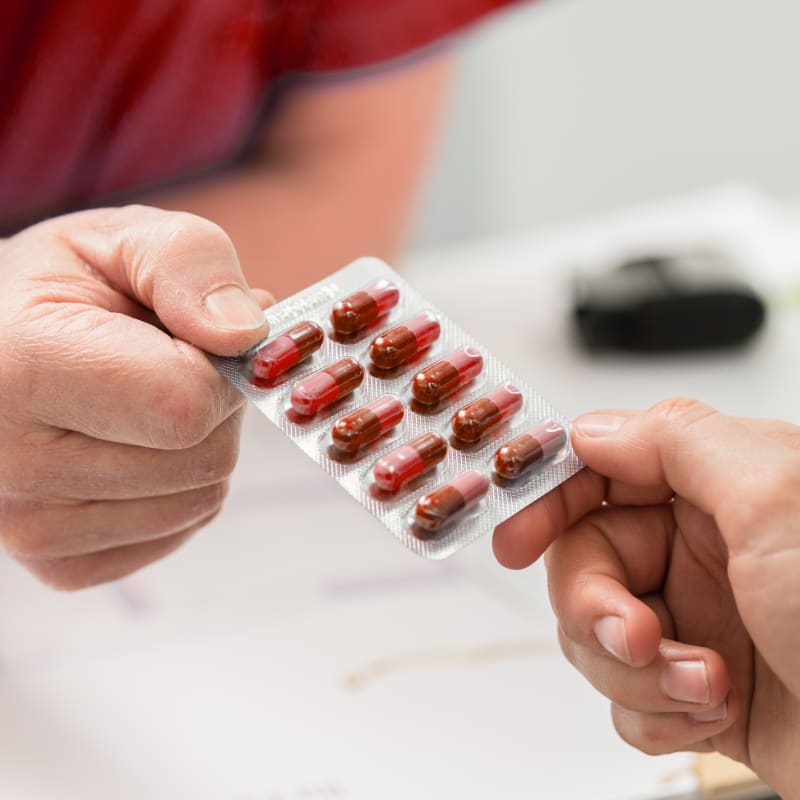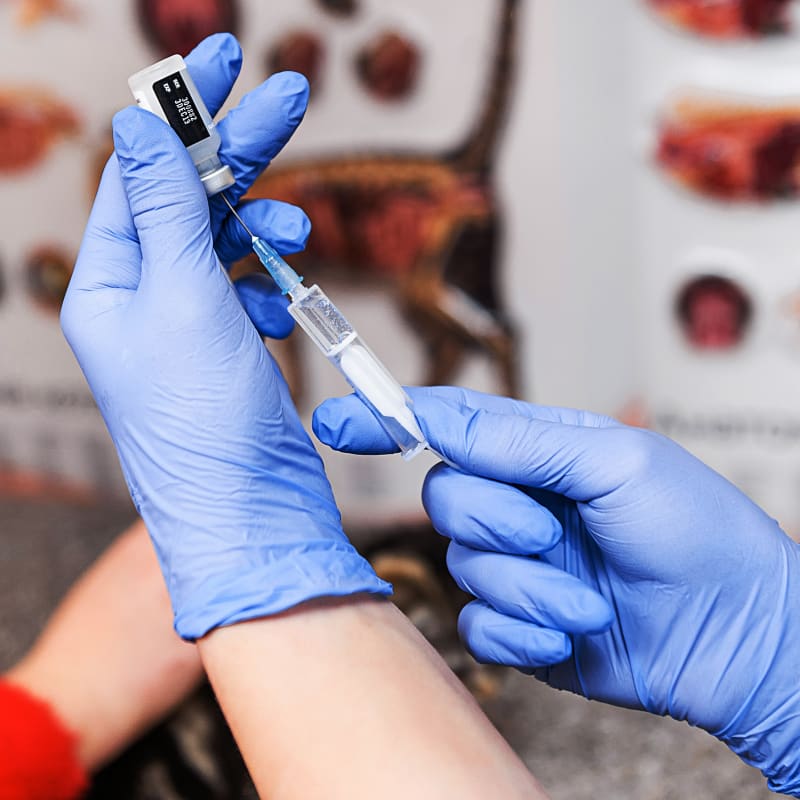
Our Veterinary Internal Medicine Services
If a pet has symptoms or an illness that cannot be diagnosed or treated by your family veterinarian, it can be referred to an internal medicine specialist for more advanced care.
At Animal Medical Center of New England, we emphasize a comprehensive, team approach to our cases and work not only with your veterinarian but also with other specialists to ensure the best care for our patients.
Our board-certified Internist is also able to conduct comprehensive diagnostic procedures using our ultrasound technology in order to support our high quality of care.
Our Internal Medicine Veterinarian
A veterinary internal medicine specialist has advanced training in veterinary internal medicine.
Why An Vet Internal Medicine Specialist?
A veterinary internal medicine specialist is skilled at diagnosing and treating diseases of the immune, cardiovascular, pulmonary, urinary, gastrointestinal, and endocrine systems in a safe, compassionate manner.
When your pet's health issues are proving difficult to concretely diagnose or resistant to conventional treatments, a board-certified veterinary internal medicine specialist has the expertise, training, and resources to help provide high-quality care to your companion.
Veterinary Internal Medicine FAQs
Veterinary internal medicine is a large umbrella of care. Below are some of the most common questions we get form our clients about our internal medicine services.
-
What internal medicine conditions do you commonly treat?
Patients are commonly referred to us for the following internal conditions:
- Diabetes Mellitus
- Cushing’s Disease
- Renal Failure
- Infectious Diseases
-
What are the common symptoms of internal conditions?
There are several signs that point to a possible internal condition. Some of the symptoms you may see are changes in appetite, vomiting, abdominal pain, weight loss, lethargy and fever.
Two of the most common symptoms, vomiting and diarrhea, can occur for several reasons. In complex cases, a veterinary internist may need to examine your pet to provide an accurate diagnosis. If your dog or cat is experiencing excessive vomiting or diarrhea along with a lack of appetite, blood in vomit or stool or weakness, it may indicate a veterinary emergency.
-
What is a board-certified Veterinary Internist?
A licensed veterinarian who has completed additional intensive training after veterinary school. This training consists of a 1-year internship followed by a 3-year residency program meeting the requirements established by the American College of Veterinary Internal Medicine (ACVIM).
Internal medicine specialists diagnose and treat serious and chronic health problems.
-
What is veterinary internal medicine?
Veterinary internal medicine involves treating diseases and disorders of animals' internal systems. Any health issue affecting your pet's internal organs falls under the internal medicine umbrella, which means that there are many illnesses and conditions for which internal medicine will be an appropriate treatment.
As part of the internal medicine treatments at Animal Medical Center of New England, our board-certified internist is able to use ultrasound diagnostic technology to gain detailed insight into your pet's internal health, assessing their wellbeing and creating treatment plans accordingly.
-
Can I be there for my pets' ultrasound?
Abdominal ultrasounds are offered on an outpatient basis. Your pet would be dropped off in the morning for an ultrasound to be performed that day. You will be contacted as soon as your pet is able to be picked up from our hospital. There is no set time or guarantee as to when the ultrasound will be performed.
-
My pet had radiography, does he really need an ultrasound?
An ultrasound is a pain-free, non-invasive procedure to evaluate your pet's internal organs. An ultrasound uses sound waves to display the organs in a real-time moving picture. It allows us to visualize objects or possible abnormalities (such as tumors or fluid) that are unseen by radiographs alone.
We are also able to obtain samples by using ultrasound to evaluate cells, perform biopsies, and/or collect fluids. If a sample is needed, sedation will be required for the safety of the pet and our staff.


